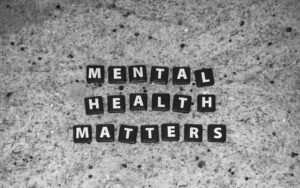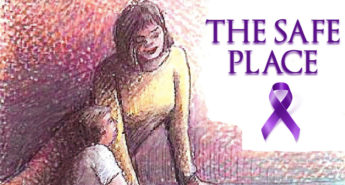 May is Mental Health Awareness Month, a time to shine a light on a topic that affects every one of us, whether directly or indirectly. Mental health isn’t just about diagnosed conditions; it’s about how we think, feel, and cope with life. It shapes our relationships, our productivity, and our ability to enjoy life. And yet, for many, especially those impacted by domestic violence, mental health remains a quiet struggle hidden beneath the surface.
May is Mental Health Awareness Month, a time to shine a light on a topic that affects every one of us, whether directly or indirectly. Mental health isn’t just about diagnosed conditions; it’s about how we think, feel, and cope with life. It shapes our relationships, our productivity, and our ability to enjoy life. And yet, for many, especially those impacted by domestic violence, mental health remains a quiet struggle hidden beneath the surface.
Domestic violence and mental health are deeply connected. Living in an abusive environment can lead to anxiety, depression, post-traumatic stress disorder (PTSD), and feelings of worthlessness or isolation. The emotional scars can linger long after physical wounds heal. For children exposed to domestic violence, the impact can be lifelong, affecting brain development, behavior, and the ability to form healthy relationships in adulthood.
When we talk about mental health, we must include the voices of survivors. Too often, they’re asked to “just move on” or “be strong,” when what they really need is support, validation, and professional help. Healing from trauma isn’t about snapping out of it. It’s about having access to resources and a safe space to begin the process.
So, what can we do about mental health, our own and others’? First, we have to talk about it more. Conversations reduce stigma. The more we acknowledge mental health as part of our overall well-being, the easier it becomes to ask for help. Second, we need to be proactive. That might look like therapy, journaling, connecting with a support group, or simply making space for rest. Self-care isn’t selfish, it’s essential.
For survivors of domestic violence, accessing mental health care can be complicated by fear, financial instability, or lack of safe housing. That’s why shelters, advocates, and community organizations play such an important role. By providing trauma-informed care, they help survivors take their first steps toward emotional healing.
But whose responsibility is mental health, really? The honest answer: it’s shared. Individuals have a role to play in seeking help and caring for themselves, but our systems like healthcare, education, and workplaces, must create environments where mental wellness is supported and accessible. Employers can offer mental health days. Schools can teach emotional regulation. Communities can fund crisis services.
We all have a stake in a mentally healthy society. Supporting mental health doesn’t always require grand gestures. It can be as simple as listening without judgment, checking in on someone you care about, or sharing your own experiences. Sometimes the most powerful thing we can say is, “You’re not alone.”
This May, let’s not let Mental Health Awareness Month pass us by as just another item on the calendar. Let it be a reminder that healing is possible, that mental health matters for everyone, and that we all have a role to play in building a world where no one has to suffer in silence.
https://www.aacpl.net/blog-entries/mental-health-awareness-month-0




Leave a Reply